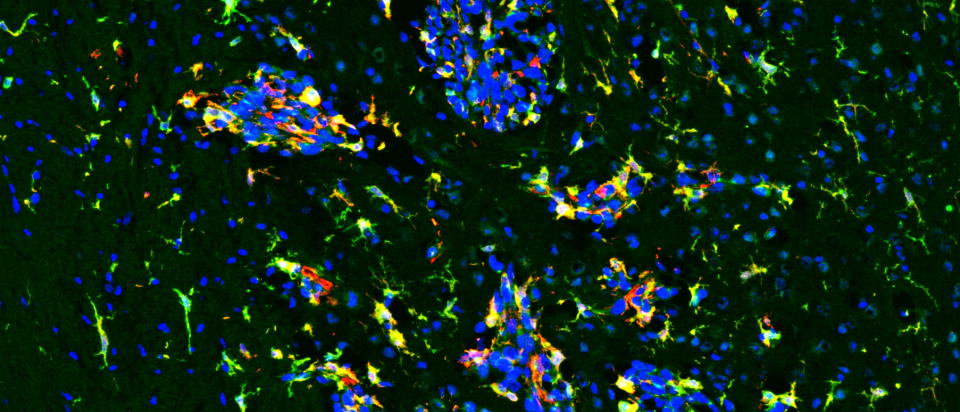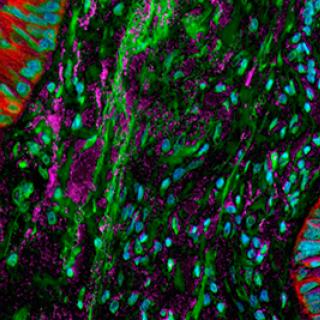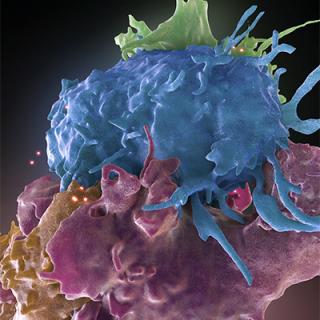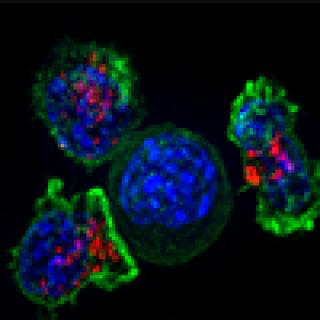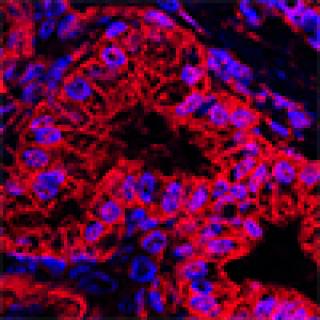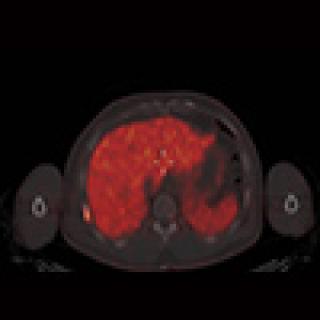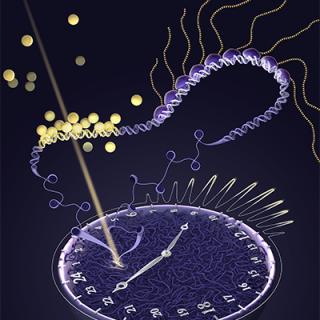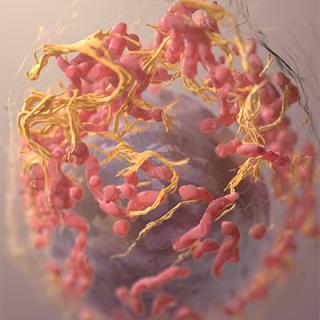News and Events
New Strategy Shows Promise Against Deadly Breast Cancer in the Brain
A new NIH study points to a promising strategy for treating aggressive breast cancer that spreads to the brain, a complication with few effective options. Learn how blocking a key brain cell survival pathway could open the door to future therapies.
Read MoreDifferences between anti-viral and anti-tumor T-cell responses could impact immunotherapy
A finding published in Cell Reports holds promise for resolving some of the conundrums surrounding CD4+ T cells and their potential in fighting cancer. The work found that CD4+ T-cell responses to tumor antigens are quite different from those to infections, highlighting a need to re-think how to harness the power of CD4+ T cells.
Read MoreNew findings hint at therapies for African Americans with lung cancer
A study published in Nature Communications reveals that two genes tend to be mutated at higher rates in cancerous lung tissue samples taken from African Americans, hinting that these patients may benefit more from certain therapies targeting those genes.
Read MoreUnlocking the key to HIV persistence
Even though antiretroviral therapies have allowed many people to live long lives, ridding the body of HIV completely has been an elusive goal ever since the discovery in the 1980s that HIV causes AIDS. New research from the Center for Cancer Research shows that proviral DNA sequences and their integration at specific sites could provide clues for researchers developing drugs to eradicate AIDS.
Read MoreClinical trial evaluates T-cell therapy for advanced mesothelin-expressing cancers
Some cancer cells express a higher-than-normal amount of mesothelin, which makes them more likely to multiply and spread to other parts of the body. Raffit Hassan, M.D., of the Thoracic and GI Malignancies Branch, is leading a trial that tests T-cell immunotherapy for patients with cancer of the lung and its lining, ovarian cancer and bile duct cancer that express high levels of mesothelin.
Read MoreComputational analysis leads to potential new drug combination for pancreatic cancer
A computer analysis has been able to predict that low levels of asparagine, an amino acid required for protein synthesis, combined with the shutdown of a stress response pathway can lead to reductions in the fitness of a tumor. These combined findings could potentially lead to new combination therapies to treat aggressive tumors, such as those found in pancreatic cancers.
Read MoreClinical trial will test radiotracer imaging for high-risk localized prostate cancer
Many men with prostate cancer are diagnosed at an early stage of the disease when the cancer is confined to the prostate. However, about 20 percent are diagnosed with high-risk disease, which tends to spread, or metastasize, to other parts of the body. William Dahut, M.D., Senior Investigator in the Genitourinary Malignancies Branch, is leading a study using positron emission tomography/computed tomography (PET/CT) with radioactive material to try and identify places in the body where prostate cancer has spread.
Read MoreMetastatic breast cancer survivor shares her clinical trial story
We’re celebrating breast cancer awareness month by sharing the story of Samantha Seinfeld, a metastatic breast cancer survivor who participated in a CCR first-in-human clinical trial over 10 years ago. Since then, she has remained cancer-free. Margaret Gatti-Mays, M.D., M.P.H., F.A.C.P., Assistant Research Physician in the Laboratory of Tumor Immunology and Biology, and James Gulley, M.D., Ph.D., Chief of the Genitourinary Malignancies Branch, are currently evaluating Samantha’s unusual immune response in hopes of improving the responses of other patients.
Read MoreDiversity of liver cancer cells can impede tumors’ response to immunotherapy
New research from the NCI’s Center for Cancer Research shows that understanding the impacts of cellular diversity on liver tumors’ microenvironment suggests ways to make immunotherapy effective for more patients.
Read MoreAdvanced imaging technology reveals pulsed hormone release regulates gene transcription
Using advanced microscopic imaging technology, CCR investigators have correlated a pulsed pattern of hormone release with bursts of transcription, the process in which the genetic information encoded by DNA is written into RNA. They are the first researchers to observe this process at a gene-specific level.
Read MoreTumor composition of melanoma indicates potential responses to immunotherapy
The number of genetic mutations in a tumor is thought to influence how well melanoma may respond to immunotherapy, but new research in mice and supported by preliminary human data reveals that the diversity of mutations within a tumor may be a better indicator of response to therapy.
Read More